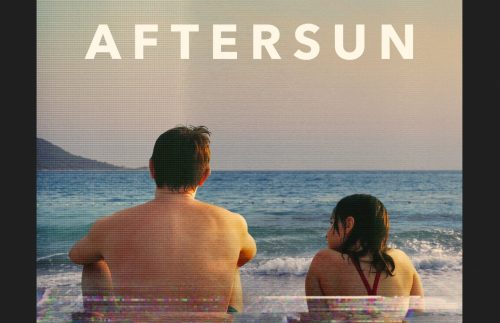
Sit back comfortably, close your eyes and try to evoke a memory of your eleventh birthday. What are you seeing, and how are you seeing it through your mind’s eye? Is it a coherent story, or is it rather an amalgam of images? And how many of these mental images are influenced by the home videos and photographs you probably saw multiple times in your family album? Can you ever be absolutely certain that your memories of the event accurately depict what happened? This becomes even more complicated when we conjure memories of the loved one that passed away. And, depending on where you are in your grieving process, the fragmented nature of their images in your mind yells the desire to fill the gaps, create a linear narrative.
Aftersun (2022), a debut feature by Scottish-born writer-director Charlotte Wells allows us to find magic in the elusive interstices in our memory. Indeed, the feelings that reside in those gaps are our gate into the past. This is how I will approach Wells’ film in this short article. Aftersun is a study of memory, a poetic investigation of remembering.

We travel back in time with Sophie (young Sophie is portrayed by Frankie Corio, whereas her adult incarnation by Celia Rowlson-Hall), who spends summer with her father, Calum (Paul Mescal), in a Turkey’s holiday resort in the 90s. Calum and Sophie’s mother broke up, and the man lives abroad, in England. We can presume the holiday is Calum’s way of making up for the time he cannot dedicate to his daughter daily. His disappointment with himself, anxiety, and depression are not named directly, but we can intuit them. Sophie is only eleven, and she does not have the understanding or language to approach such topics. Still, she feels that her father battles with an invisible demon and Aftersun embodies these emotions subtly but powerfully.

This incredibly poignant portrayal of depression could not come to life without Paul Mescal’s sublime acting, who received an Oscar nomination for this role. It is hinted that Callum is no longer alive, and adult Sophie tries to find him in her memory of the sunny days in Turkey. The image that reappears is Callum dancing in a nightclub with strobe lights illuminating his figure. This resembles neurons lighting up in our brain, trying to provide a coherent narrative but, ultimately, leaving us with elusive strands.

The film is woven with different fabrics: the home video footage, Sophie’s memories and her imagination of what happened. It resembles a carpet Calum impulsively buys in one of the local shops: patchwork that changes depending on the angle we look at it from. These images are accompanied by music so powerfully fitting that they palpably come to life. Songs such as Losing My Religion by R.E.M or Under Pressure by David Bowie could even function as titles of the film’s chapters.

It unyieldingly eludes any fixed interpretation we attempt to impose on it. It slowly enters the most hidden parts of our being. Frame by frame, it slides deeper and deeper into the interstices of our consciousness, unearthing emotions we buried because we could not define them. Wells’ film possesses the power to transform us by forcing us to face these ambiguous feelings – if we let it. In this context, Aftersun can be described as pure cinema, a term coined in the 1920s by French avant-garde filmmakers. Devoid of linear narrative, the film’s magic lies in the image itself: the subtlety of movement in the frame, a gesture, facial expressions, and texture of the image. These frames are conjoined like a patchwork, blended without giving us a coherent story, not unlike our memory.

The ending of Aftersun left me in tears, with a feeling of repressed emotions coming to the surface of my consciousness. Writing this, I am still suspended in this state, allowing it to linger. In its purest form, cinema has the magical ability to extract from us affects and emotions we are unaware of. It names it for us in its own language: images, sound and these interstices in between.

